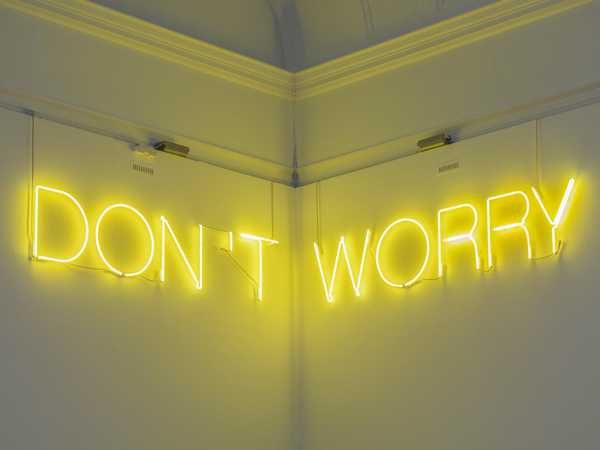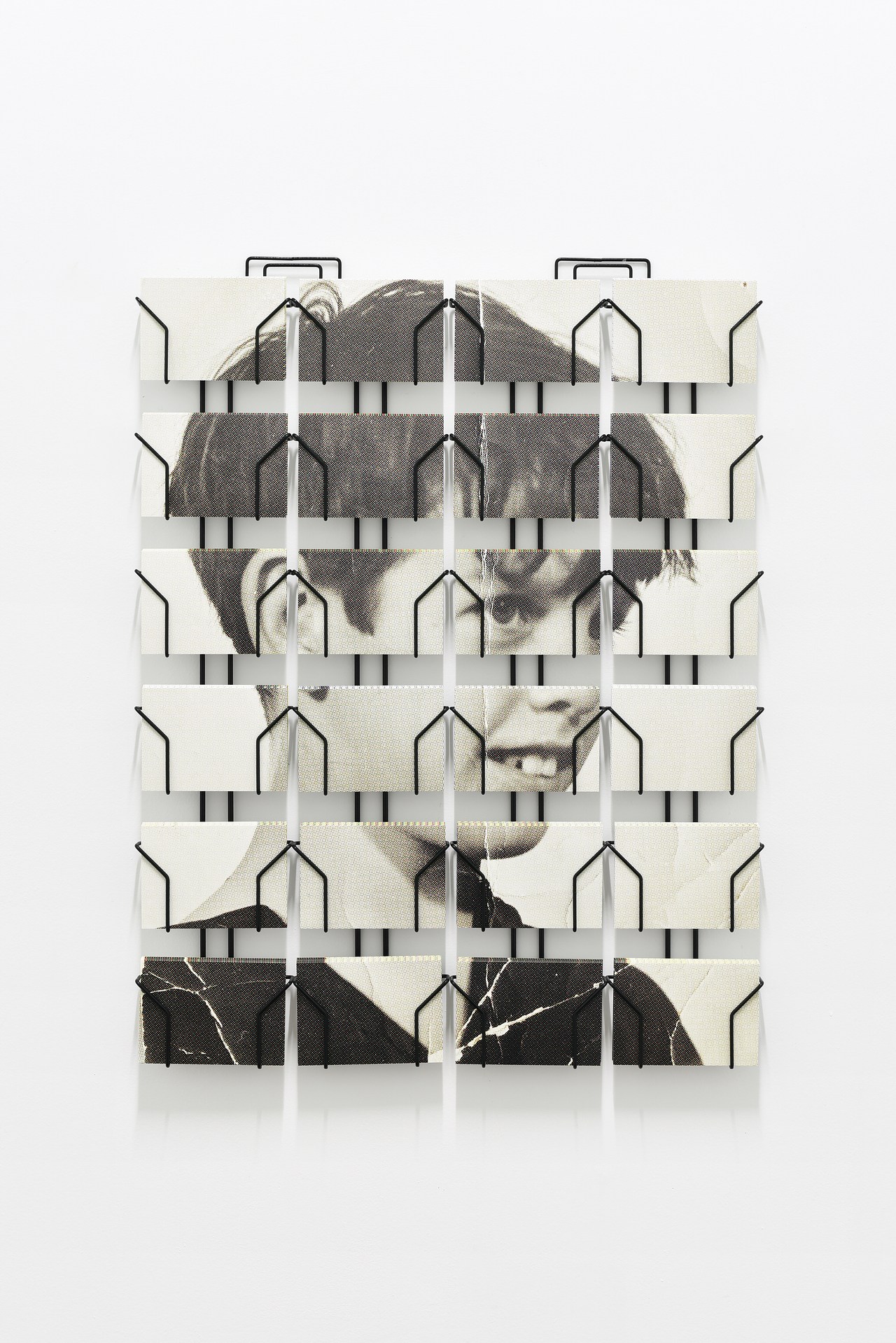Work No. 299
2003 - Photography (Photography)
75 x 100 cm
Martin Creed
This photograph of Martin Creed himself was used as the invitation card for a fundraising auction of works on paper at Christie’s South Kensington in support of Camden Arts Centre’s first year in a refurbished building in 2005. His broad smile, on the verge of laughter, encourages reciprocity on behalf of the onlooker. This could be said to be a typical tactic in Creed’s work as it is so infused with humor and irony. To him, art is like a game, or certainly very much a part of banal reality. Within the genre of self-portraits, this subverts the usual tradition of images of the artist as creator. Creed often jokes or questions whether the artwork (or in this case the persona of the artist) has any value or exists. Standing in front of a very British brick wall which likely carries art historical connections and puns, Creed seems to mock or certainly stand amazed at his own commercial success. In 2001, he won the Turner Prize with his controversial Work No. 227. The Lights Going on and off. “I want to make things. I’m not sure why, but I think it’s got something to do with other people. I think I want to try to communicate with other people, because I want to say ‘hullo’, because I want to express myself, and because I want to be loved”.
Martin Creed is a sculptor, filmmaker, performer and installation artist. Working within a minimal or conceptual mode, most of his artworks, objects, statements, suggestions or performances are titled “Work” and numbered. He wittily subverts the definitions of art and often uses mundane modest materials such as Blu-Tack, balloons, tape, piles of paper. In 1993, Work No. 81 consisted of a one-inch cube of masking tape in the middle of every wall in a London firm and since 1998 Work No. 200 proposes “the air in a given space” through filling it with balloons. Yet any anti-materialism is occasionally counteracted like in the marble staircase realized for the city of Edinburgh or the bronze sculptures. Creed is constantly reappraising things and nothings and all incumbent relations. During 5 months in 2008, Work No. 280 London runners sprinting one by one through the Duveen Galleries in Tate Britain. Martin Creed was born in Wakefield, UK, 1968. He lives and works in London, UK and Alicudi, Italy.
Colors:
Other related works, blended automatically

© » TATE EXHIBITIONS
Martin Creed
Martin Creed | The Dick Institute Experience the work of one of this country’s most ingenious, audacious and surprising artists at the Dick Institute ARTIST ROOMS Martin Creed presents highlights from the British artist’s thirty-year career...

© » KADIST
Andrew Grassie
2009In 2008, Grassie was invited by the Whitechapel Gallery to document the transformation of some of its spaces...

© » KADIST
Ian Breakwell
2008“BC/AD” (Before Cancer, After Diagnoses) is a video of photographs of the artist’s face dating from early childhood to the month before he died, accompanied by the last diary entries he wrote from April 2004 to July 2005 (entitled “50 Reasons for Getting Out of Bed”), from the period from when he lost his voice, thinking he had laryngitis, through the moment he was diagnosed with lung cancer and the subsequent treatment that was ultimately, ineffective...

© » KADIST
Félix González-Torres
1992Behind the simplicity and beauty of this untitled photograph of a brilliantly-colored flowerbed by Félix González-Torres are two remarkable stories of love, loss, and resilience...

© » KADIST
Chris Wiley
2012Architectural details become abstracted renderings in Chris Wiley’s inkjet prints 11 and 20 (both 2012)...

© » KADIST
Tony Labat
2008Commissioned by the San Francisco Museum of Modern Art and riffing on the “I Want You” army recruitment campaigns of the 1930s and 1940s, Labat asked Bay Area residents to interpret the slogan and make their own demands of the public in a series of live performance auditions...

© » KADIST
Paul McCarthy
2008Memory Mistake of the Eldridge Cleaver Pants was created for the show Paul McCarthy’s Low Life Slow Life Part 1 , held at California College of the Arts’s Wattis Institute in 2008 and curated by McCarthy himself...

© » KADIST
Mark Leckey
2004In Made In Heaven , we are face to face with a sculptural apparition, a divine visitation in the artist’s studio...

© » KADIST
Ryan Gander
2012Epiphany…learnt through hardship is composed of a bronze sculpture depicting the model of the little dancer of Degas, in the pose of a female nude photographed by Edward Weston (Nude, 1936) accompanied by a blue cube...

© » KADIST
Simon Starling
2007Invited in 2007 to the Museum Folkwang in Essen (Germany), Simon Starling questioned its history: known for its collections and particularly for its early engagement in favor of modern art (including the acquisition and exhibition of works by Cézanne, Gauguin, Van Gogh, Matisse), then destroyed during the Second World War, the museum was pillaged for its masterpieces of ‘degenerate art’ by the nazis...

© » KADIST
Toby Ziegler
2007Wagon Wheel is a work with a fundamental dynamism that derives both from the rotating movement of the elements suspended on poles and the kicking of the legs of the figure...

© » KADIST
Cerith Wyn Evans
2008Untitled (Perfect Lovers + 1) by Cerith Wyn Evans takes as its starting point Felix Gonzales-Torres’s seminal work Untitled (Perfect Lovers) , in which two clocks were synchronized and left to run without interference, the implication being that one would stop before the other...








